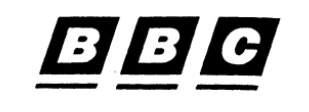TRADEMARK OF THE WEEK – BBC
The British Broadcasting Company, originally called the BBC, was formed on 18th October 1922 by a group of leading wireless manufacturers, including Marconi. Daily broadcasting by the BBC began on November 14th, 1922, in Marconi’s London studio, 2LO, located in the Strand. It is the world’s oldest national broadcaster and the largest broadcaster in the world by the number of employees, employing over 21,000 staff in total, of whom approximately 17,900 are in public-sector broadcasting. The BBC operates under a royal charter and works under its agreement with the Secretary of State for Culture, Media, and Sport. Its work is principally funded by an annual television license fee, which is charged to all British households, companies, and organizations using any type of equipment to receive or record live television broadcasts or watch using iPlayer.

The BBC registered its logo with the EUIPO on 30th July 2001, bearing the serial number 000219071. The mark can be described as figurative in nature and falls under classes 9, 16, 38, and 41 of the international classification of goods and services for the purposes of the registration of marks. The 2017 charter abolished the BBC Trust and replaced it with external regulation by Ofcom, with governance by the BBC Board. The BBC Board was formed in April 2017 and replaced the previous governing body, the BBC Trust, which in itself had replaced the board of governors in 2007. The board sets the strategy for the corporation, assesses the performance of the BBC’s executive board in delivering the BBC’s services, and appoints the director-general.




 +1 888 890 6411
+1 888 890 6411